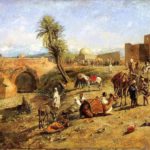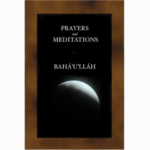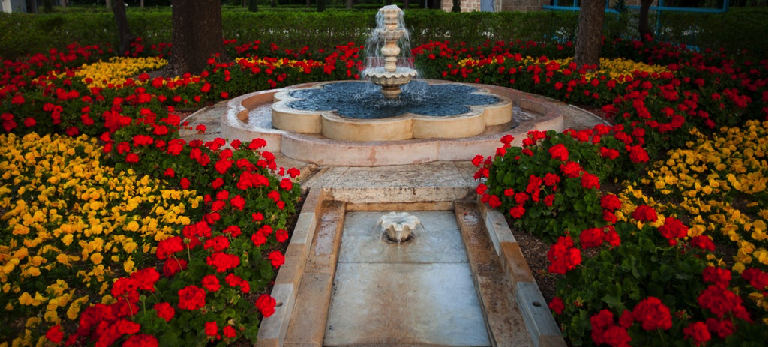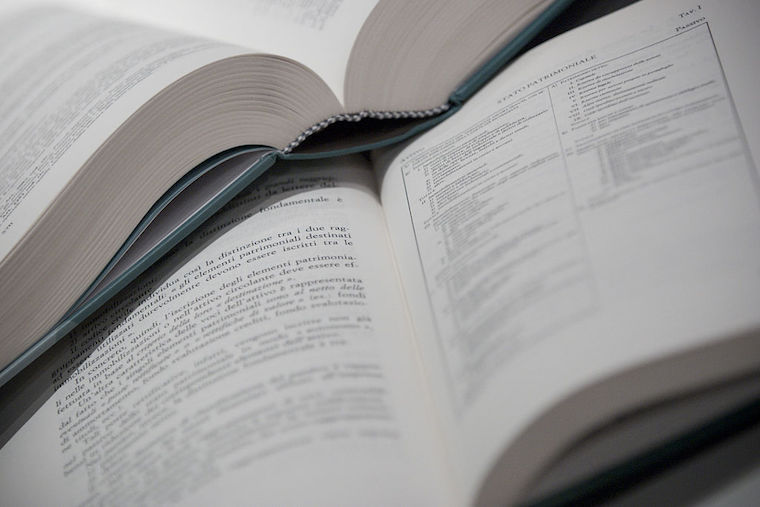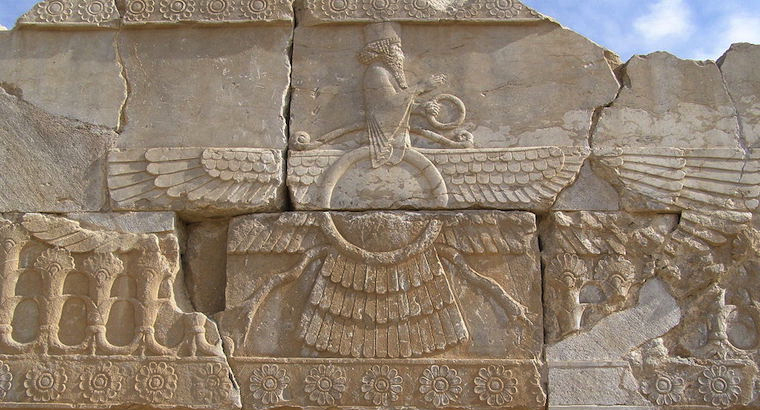
Bridging East and West – Bahá’u’lláh’s Dialogue with a Zoroastrian Leader
 Zoroastrianism is one of the world’s most ancient faiths. One of its leaders wrote to Bahá’u’lláh. His reply was an exploration of the oneness of religion and the needs of today. Although not well-known in the English speaking world, beyond the fact of its existence, it was once the faith of a great civilization that stretched from Central Asia to Greece. It comes from the same part of the world in which Bahá’u’lláh was born and there was in his day, and still today a Zoroastrian community in Iran.
Zoroastrianism is one of the world’s most ancient faiths. One of its leaders wrote to Bahá’u’lláh. His reply was an exploration of the oneness of religion and the needs of today. Although not well-known in the English speaking world, beyond the fact of its existence, it was once the faith of a great civilization that stretched from Central Asia to Greece. It comes from the same part of the world in which Bahá’u’lláh was born and there was in his day, and still today a Zoroastrian community in Iran.
When visiting America, Abdu’l Baha would sometimes comment on the effects of Bahá’u’lláh’s teachings. Communities which had kept apart for hundreds of years were coming together under the influence of Bahá’u’lláh’s teachings, among them people who before becoming Baha’is had been Jews, Christians, Muslims or Zoroastrians.
[Bahá’u’lláh] founded teachings which became the means of uniting the various and divergent peoples. He promulgated principles which removed the cause of their dissension, until today in Persia those who had been constantly at war are united. Christians, Muslims, Zoroastrians, Jews — people of every belief and denomination who have followed the teachings of Bahá’u’lláh—have attained complete fellowship and spiritual agreement. Former differences and dissensions have passed away entirely.[1]
What Abdu’l Baha was presenting – was a microcosm of the world that had already come to be — and a vision of what the world could be.
Not long after Bahá’u’lláh was imprisoned in Akka, people of Zoroastrian background began to join the Baha’i Faith in significant numbers. It was a development that occasioned wonder among those who saw it. For hundreds of years, the Zoroastrian community had been severely persecuted – treated much like the Jewish community of Europe in the Middle Ages — always treated as an “unclean” and despised minority — and ever under the threat of outbreaks of violence. (Baha’u’llah we may recall abolishes the religious concept of ritual uncleanness).
For members of this community to enter the Baha’i Faith – whose own roots are connected with Islam – was indeed remarkable.
A Zoroastrian leader who was attracted to Bahá’u’lláh’s teachings (but who never became a Baha’i) was Manikchi Sahib. He had met Bahá’u’lláh in Baghdad and later wrote to Baha’u’llah a series of questions concerning the relationship between different religions and different religious concepts. As it happened Mirza Abu’l Fadl, who was the focus of a previous article, was Manikchi Sahib’s secretary for a period.
Although translated extracts have been available for many decades in the translations of Shoghi Effendi, Bahá’u’lláh’s answers to Manikchi Sahib have in recent years been entirely translated into English and can now be read online under the title: the Tabernacle of Unity.
The Tabernacle of Unity is one of the few occasions in which Bahá’u’lláh addresses religious concepts outside the Abrahamic tradition. It is significant therefore as a bridge between that tradition and the Dharmic religions originating further to the East (such as Hinduism). Manikchi Sahib asks various questions as to whether the views of one religion or another are to be preferred. However, Bahá’u’lláh draws his enquirer to think about other questions as his answers make plain:
Turn your faces from the darkness of estrangement to the effulgent light of the daystar of unity. This is that which above all else will benefit the peoples of the earth.[1]
… The tabernacle of unity hath been raised; regard ye not one another as strangers. Ye are the fruits of one tree, and the leaves of one branch.[2]
Bahá’u’lláh is calling for an approach to religion which fosters its oneness.
The Tabernacle of Unity is also of interest in that it comes in two versions: a first letter in which Bahá’u’lláh allows the reader to infer from his words broader principles. However, as Manikchi Sahib was unable to see the implications of Bahá’u’lláh’s words, Bahá’u’lláh wrote him a second reply that expanded on the first. Taken together the two versions give us insight into the economically way Bahá’u’lláh sometimes uses words – inviting us to think about the implications of his words.
For example, in the first letter Bahá’u’lláh states the following in reply to a question about the scriptures:
As to thy question concerning the heavenly Scriptures: The All-Knowing Physician hath His finger on the pulse of mankind. He perceiveth the disease, and prescribeth, in His unerring wisdom, the remedy. Every age hath its own problem, and every soul its particular aspiration. The remedy the world needeth in its present-day afflictions can never be the same as that which a subsequent age may require.Be anxiously concerned with the needs of the age ye live in, and centre your deliberations on its exigencies and requirements.[4]
In the second letter, Bahá’u’lláh points to this reply as the important thing about religious controversies of the past. The world needs something new —- it cannot progress if humanity endlessly returns to the philosophical disputes of the past — rather he calls us to be “anxiously concerned” with the needs of our own time.
Source: Adib Taherzadeh, The Revelation of Bahá’u’lláh, Volume 3, Chapter 12
Image Credits: Zoroastrian symbol in the ruins of the ancient city of Persepolis By Napishtim (Own work) [GFDL (http://www.gnu.org/copyleft/fdl.html) or CC BY-SA 3.0 (http://creativecommons.org/licenses/by-sa/3.0)], via Wikimedia Commons
(This article is the 144th in a series of what I hope will be 200 articles in 200 days for the 200th anniversary of the birth of Bahá’u’lláh. The anniversary is being celebrated around the world on 21 and 22 October 2017, The articles are simply my personal reflections on Bahá’u’lláh’s life and work. Any errors or inadequacies in these articles are solely my responsibility.)


